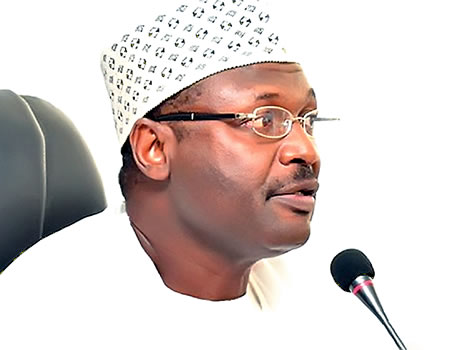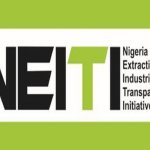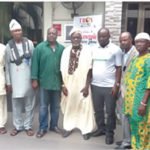IN a move which sparked outrage and incredulity in the polity, the Independent National Electoral Commission (INEC), last week, fixed Saturday, March 9, to conduct supplementary elections in areas where elections were cancelled during the February 23 presidential/National Assembly elections. In a statement issued by its Commissioner for Information and Voter Education, Mr. Festus Okoye, the commission said that the supplementary polls would be conducted alongside the governorship and state houses of assembly elections previously scheduled for Saturday. Okoye, who noted that the decision was reached during the commission’s meeting with resident electoral commissioners (RECs) last Thursday in Abuja, said: “The meeting decided that supplementary elections will be conducted in all areas where elections did not take place and/or where returns could not be made on Saturday, 9th March alongside the governorship and state Houses of Assembly elections. The meeting acknowledged the delays in the commencement of elections in a number of polling units which necessitated the extension of the closing of polls in the affected areas. The commission is determined to rectify the identified challenges before the elections on 9th March.”
When, during the February 23 elections, hoodlums snatched ballot boxes in several parts of the country, prevented voters from exercising their franchise, and committed murder and other grievous crimes, the expectation among the populace was that INEC would not announce the results of elections in the said areas, many of them said to be strongholds of the opposition parties, until supplementary elections had been conducted and the people’s mandate respected. Indeed, during the collation of results, many a party agent raised the issue but the INEC boss, Professor Mahmood Yakubu, noted that such questions would be addressed after the collation exercise. However, INEC’s announcement last week led to speculations regarding whether the supplementary elections would affect the results already announced, with some commentators asking whether the number of registered voters in areas where the supplementary presidential elections would be conducted would be up to the margin with which the candidate of the All Progressives Congress (APC), President Muhammadu Buhari, defeated his main challenger, Alhaji Atiku Abubakar of the Peoples Democratic Party (PDP), namely 15,191,847 votes to 11,262,978 votes.
Apparently perturbed by the reactions to its statement, INEC issued a further clarification, namely that “the supplementary elections will only hold for National Assembly seats and in areas where violence prevented the declaration and return of a candidate. The list of PUs (polling units), areas, senatorial districts and constituencies affected is available from INEC state offices.” To say the least, both the initial statement and the clarification by the commission are bogus and provocative. Without considering those voters who were disenfranchised by the activities of hoodlums in many areas, INEC went ahead to declare a winner of the presidential election. By saying that it would organise supplementary elections after thousands of voters had been prevented from exercising their democratic franchise, the commission only heightened the ethical, political and social problems associated with the February 23 elections.
Pray, if the supplementary elections would only affect National Assembly seats, what happens to those Nigerians whose presidential votes were nullified by hoodlums across the country? Is INEC saying that the violence that took place on February 23 only affected National Assembly votes? If so, how can this
be proved when the presidential and National Assembly polls were held simultaneously? Or is the commission saying that those Nigerians who were prevented from voting the presidential candidates of their choice or who watched the ballot boxes in which they had already cast their votes destroyed by hoodlums do not matter? What should such Nigerians do: wait for another four years before voting presidential candidates of their choice?
The situation is worsened by the allegation that in many parts of the country, certificates of return were issued to National Assembly candidates even while there were no voting in some of the polling units in their senatorial districts or federal constituencies. Through INEC’s action, Nigeria has now been portrayed as a banana republic. This is most unfortunate, especially when the disparities in figures emanating from the commission itself are considered. For instance, ahead of the aborted February 16 polls, the commission had told Nigerians that the total number of registered voters was 84,004,084. However, after the February 23 elections, it changed the figure to 82,344,107. Worse still, while the commission claimed that there were a total of 29,364,209 accredited voters, it added that there were a total of 27,324,583 votes. Given the fact that accreditation and voting were done simultaneously, the disparity between the number of accredited voters and the total number of votes cast needs to be clarified. There would of course be a difference between the total number of votes cast and the total number of valid votes, by reason of improperly thumbprinted ballot papers.
It is high time the commission learnt to play by the rules. Creating a situation whereby voters would have to be calculating whether a proposed supplementary election would affect the certificates of return already issued to candidates in elections is both defeatist and dangerous. Happily, though, the commission has promised to clean up its act. It should demonstrate this resolve by performing better in the elections coming up on Saturday. The courts are, of course, there to make pronouncements on the issues emanating from the elections.






